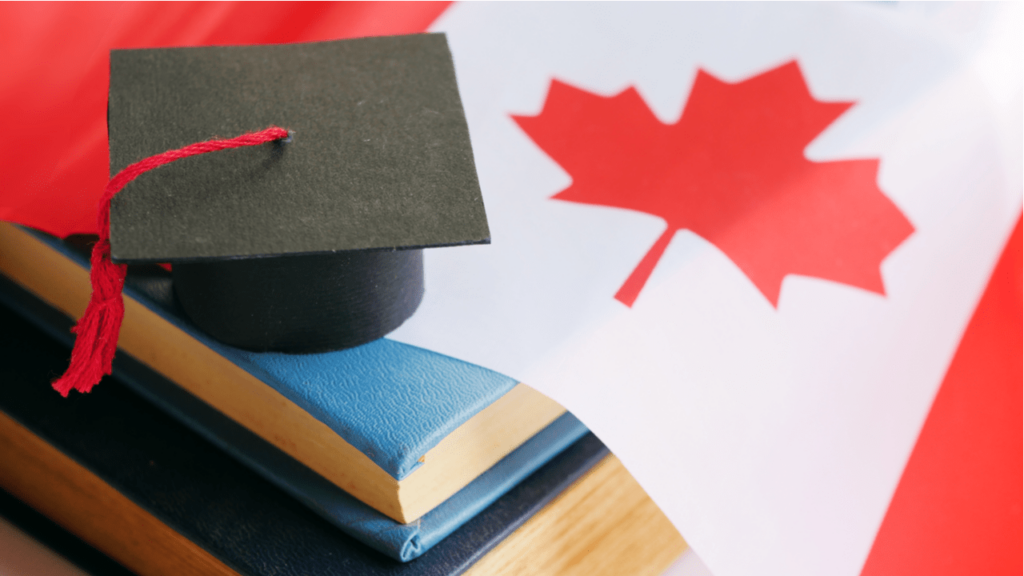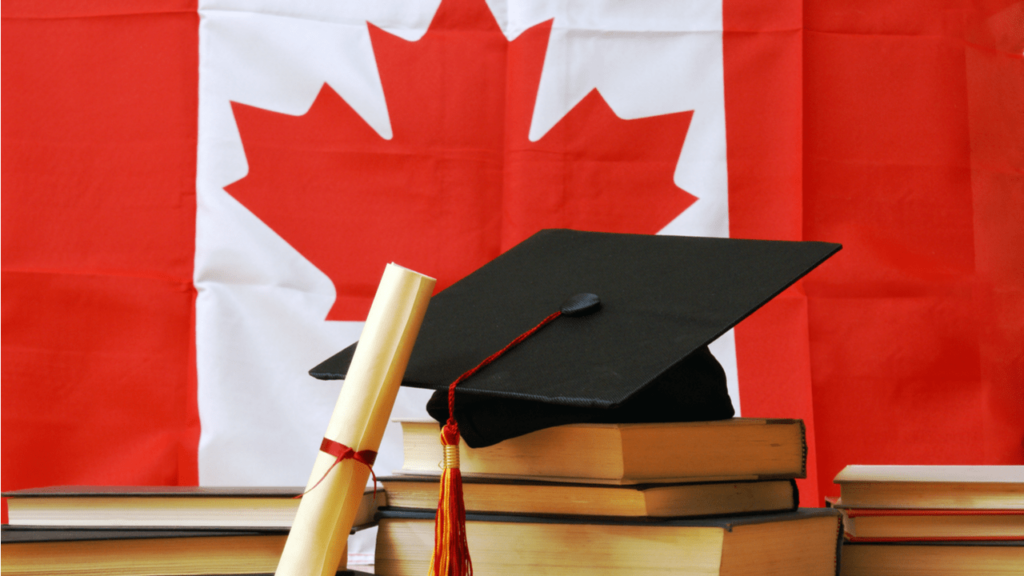Around 12% of Indian students prefer to study in a Canadian university as revealed by the International Students Admission Service research. This comprehensive guide outlines the Courses In Canada After 12th.
This destination is popular with students due to the high-quality education it offers and employment opportunities. Moreover, institutions such as the University of Toronto, University of British Columbia and McGill rank among the top 50 globally.

Leap Advantage Virtual Spot Offer Event on May 10th 2024

Last call to secure your spot for Masters in STEM Program in the US for Fall ’24 exclusively for graduates and above.
Leap Advantage Virtual Spot Offer Event on May 10th 2024
Last call to secure your spot for Masters in STEM Program in the US for Fall ’24 exclusively for graduates and above.

Reasons to Study in Canada after the 12th
Today Canada ranks among the most preferred study destinations, specifically for Indian students. Causes behind the increase are- high-quality education, skilled faculty, top-class infrastructure, work during course facility, health benefits, a multicultural environment with easy immigration opportunities, affordable, and a safe country to live in.
Canada is among the first few countries to offer STEM Courses which expands its academic and practical courses in parallel with its evolving demand in the market. Students can choose to study in Canada after the 12th due to the wide range of courses offered. Besides, individuals can also opt for part-time jobs and pursue their courses. First, however, they must understand the requirements mentioned below.
Requirements to Study in Canada
- IELTS, SAT, and TOEFL test scores documents
- CV/ Resume, SOP (Statement of Purpose), Essays, Letter of Recommendation.
- Transfer certificate
- Visa documents
- Financial / loan document as asked by the university
Check Your Eligibility for 80+ Universities across Canada

Book a free counselling session and find universities where you can get an Admission!
Check Your Eligibility for 80+ Universities across Canada
Book a free counselling session and find universities where you can get an Admission!

UG Diploma & Certificate Courses In Canada After 12th
Canada admits a large number of international students every year for both undergraduate and diploma programmes. These Universities offer full time and part-time programmes, Diploma courses for 1-3 years, certificate and vocational training programmes for 1 year, and PG diploma courses for 1-2 years.
Management Programmes in Canada
Some of the full-time courses in Canada after the 12th for the Management programme are:
| List of UG/ Diploma courses in Management | Top Management Universities in Canada |
|---|---|
| BBA in Retail Management BBA in Human Resource Management BBA in Supply Chain Management BBA Finance BBA Accounting BBA Marketing BBA in General Management BBA in Entrepreneurial Leadership Bachelor in Business Technology Management Bachelor in Environment Management Diploma in Business Administration Diploma in Office Administration Diploma in Interactive Media Management Diploma in Project Management Diploma in Global Business Management | Vancouver Island University University of British Columbia University of Toronto Humber College McMaster University MacEwan University McGill University |
Courses in Commerce
Commerce Courses in Canada after 12th commerce with or without math. Tuition fees for international students are $73,080.
| List of UG / Diploma courses in Commerce | Top Commerce Universities in Canada |
|---|---|
| B. Com (Marketing, Finance, Advertising, Taxation, Accounting) B. Com Business Administration and Computer Science B. Com in Entrepreneurship and Innovation B. Com Logistics and Supply Chain Management Bachelor of Construction Management and Economics Bachelor of Commerce and Management(BCM) Bachelor of Cost Accounting Bachelor of Foreign Trades Bachelor of Statistics CA (Chartered Accountant) CS (Company Secretary) Diploma in Business Administration Diploma in HR Management Diploma in Hotel Management Certificate of Financial Planner | University of Toronto McMaster University University of British Columbia University of Alberta University of Calgary Dalhousie University Queen’s University |
Science courses
Canadian universities have world-class UG and diploma courses offered for international students. Tuition fees range from $30,000 per year.
| List of UG / Diploma Science Courses (Non-Medical) | Top Science Universities in Canada |
|---|---|
| B. Tech/ B.E B. Tech Pharmaceutical and Food Science Technology B. Pharm (Bachelor of Pharmacy) B. Sc. (Biotechnology, Nutrition and Dietetics, Microbiology, Botany, Zoology) B. Sc. (IT and Software) BCA ( IT and Software) Civil Engineering Mining Engineering Chemical Engineering Computer Engineering Geological Engineering Biomedical Engineering Mechanical Engineering Mechanical and Material Science Engineering Bachelor of Architecture (B. Arch) Diploma in Architectural Technology Diploma in Heavy Duty Equipment Technician Diploma in Electronics Engineering Technician Diploma in Automotive Service Technician Diploma in Automotive Power Technician | University of Toronto McGill University York University University of Alberta University of British Columbia Memorial University of Newfoundland |
Arts in Canada
International students interested to study Arts and Humanities in Canada can earn BA, BAS (Bachelor of Arts and Science, BSW (Bachelor of Social Work), BGS (Bachelor of General Studies), AA (Associates of Arts) or Diploma courses.
| List of UG / Diploma Arts courses in Canada | Top Arts Universities in Canada |
|---|---|
| BA English BA History BA Sociology BA Geography BA Psychology BA Economics BA Political Science BA Public Administration Bachelor of Arts and Cultural Studies Bachelor of Mass Communication / Journalism Language and Linguistics Foreign Language Diploma in Fine Arts Diploma in Educational Leadership Studies Filmmaking | McMaster University York University Concordia University University of Alberta Western University University of Montreal University of Calgary McGill University. |
Hotel Management Courses
Canadian universities’ management courses are the most sought-after by international students due to their affordability, easy availability of student visas, and faculty. Moreover, there are various management courses such as Project Management, Hotel Management and Supply Chain. The most popular Hotel Management courses are:
| List of UG / Diploma Hotel Management courses in Canada | Top Hotel Management Universities in Canada |
|---|---|
| Diploma in Food and Beverage Management Diploma in Hospitality Bachelor of Arts in International Hotel Management B. Com in Hospitality and Tourism Management BA in Arts and Global Tourism Management Bachelor in Tourism Management B.Sc. in Hotel Management BHM (Bachelor of Hotel Management) B.Sc. in Culinary Arts BSc. in Hospitality and Hotel Administration B.Sc. in Hotel and Catering Management Bachelor of Hotel Management and Catering Technology B. Sc. (Hons) in International Hospitality Management B.Sc. Resort & Event Management B.Sc. Hotel Management, Catering & Tourism | The University of Quebec at Montreal Cape Breton University Okanagan College Niagara College Canada Algonquin College Royal Roads University |
Courses in Aviation
Canadian Universities provide diploma, undergraduate and postgraduate, vocational and certificate courses. However, candidates who want to pursue Canadian courses after the 12th can opt for Aviation as it is one of the most popular. In addition, it is designed so that it offers individuals with on-field knowledge. Underlined below are the names of the courses:
| List of UG / Diploma Aviation courses in Canada | Top Aviation Universities in Canada |
|---|---|
| B.Sc. in Aviation B.Sc. in Aeronautics B.Sc. in AME (Aircraft Maintenance Engineering) B. Tech in Aerospace Engineering, specialisation in Avionics B. Tech in Aeronautical Engineering BE in Aerospace Engineering BBA in Airport Management BBA in Aviation Management Commercial Pilot Courses / Commercial Pilot License Certificate in Aviation Fundamentals Diploma in Aeronautical Engineering Diploma in Aviation Technician Diploma in General Arts and Science- Aviation Management Diploma in Flight Service- Operations and Cabin Management Diploma in Airport Operations | University of British Columbia University of Waterloo Mount Royal University Western University |
Courses in Law
Law schools in Canada are prestigious, and one of the most demanded professions. The tuition fees for LLB in Canada can vary from $14,000- $28,000 depending on the course you select. Here is the list of some top Law courses in Canada after the 12th:
| List of UG / Diploma Law courses in Canada | Top Law Universities in Canada |
|---|---|
| Diploma in Law Clerk Community and Criminal Justice Cyberspace Law Environment Law Intellectual Property Administrative Law Equitable Remedies Jurisprudence and Critical Perspectives BA Law and Society Juris Doctor Criminal Justice and Public Policy Diploma in Paralegal Studies Diploma in Law Clerk BA in Criminology Diploma in Paralegal studies | Laval University Dalhousie University University of Victoria University of Ottawa York University McGill University University of Toronto |
Design Programmes
The design industry is now a multi-billion dollar industry with the raise in demand for creative and skilled designers. After completion of the 12th students can pursue Graphic design, UX design, web design, interior design, photography and fashion designing course. Listed below are the top design institutes in Canada along with the courses offered.
| List of UG / Diploma Design courses in Canada | Top Design Universities in Canada |
|---|---|
| Bachelor of Interior Design Bachelor of Environmental Planning and Design Fashion Design Bachelor in Video Game Design and Animation Bachelor in Graphic Design and Interactive Media Bachelor of Communication Design Diploma in Apparel Design Diploma in Interior Designing Diploma in Graphic Design Production (GRDP) Diploma in Graphic Design and Photography | Brock University Acadia University Emily Carr University of Art and Design Ryerson University University of Alberta Concordia University University of Manitoba |
Top Universities For Masters in UX Design Canada
Eligibility for Bachelor & Diploma Courses In Canada After 12th
Eligibility to study in Canada depends on the institution and university applied for. Canadian Universities/ Colleges use metrics to convert Indian divisions to GPA scores to check eligibility.
However, students must understand the requirements to study in Canada after the 12th. First and foremost, they must prove their English skills beforehand. They can opt for any English proficiency test such as the International English Language Testing System, Test of English as a Foreign Language, and Pearson Test of English.
For Undergraduate Requirements:
- Students must have a minimum of 70% or above in 12th
- Students must obtain an IELTS score of 6.5 and 213 for TOEFL. However, many students can also be provided with an unconditional offer letter if they secure more than 75% English. But one must remember that the visa process requires candidates to have proof of their English proficiency.
For Diploma Courses Requirement:
- Students must secure 6.5 in IELTS or 213 TOEFL
- Students must complete 10+2 from recognised boards (Flexible admission for class 12 per cent).
Student Partners Program (SPP)
Launched in the year April 2008, the SPP (Student Partners Program) is an arrangement between the Association of Canadian Community Colleges (ACCC) and the Citizenship and Immigration Canada (CIC) body. It aims for smooth admission and visa process of Canadian Community Colleges and increases the number of visas issued for Indian students. Nearly 46 colleges come under the SPP colleges in Canada. The tuition fees are affordable and fall under C$20,000- C$30,000 (Canadian Dollars) annually.
Best Cities to Study in Canada After 12th
Canada is a multi-cultural country and an easy immigration policy is considered safe. With its world-class education system, experienced faculty, and amazing landscape is a perfect environment to study. Here are some of the best cities to study in Canada:
- Toronto
- Ottawa
- Montreal
- Quebec City
- Vancouver
- Rouyn-Noranda
- Trois-Rivières
- Charlottetown
- Québec
- Brandon

Conclusion
Some Universities in Canada also provide Co-op programmes, where students can study and get official paid work terms. Now that you know about the popular diploma courses in Canada after the 12th. You can plan out the career to move in and accordingly select the university. Read LeapScholar blog for detailed information or book a session with our Study abroad counsellors for guidance.
FAQ
1. What are the documents required to study in Canada after the 12th?
Ans: Individuals must keep these below-mentioned essential documents handy while applying for courses in Canada after the 12th:
a. Class 10th and 12th transcripts
b. Passport
c. English proficiency test scores
d. Resume
e. Letter of Recommendation
f. Statement of Purpose
2. What is the IELTS score accepted in Canadian Universities?
Ans: Individuals must have a minimum of 6.5 in IELTS to apply to Canadian Universities.
3. What is the minimum percentage required to pursue courses in Canada after the 12th?
Ans: The minimum percentage required is 65% after the 12th.
4. Which course is best after the 12th in Canada?
Ans: List of the best courses in Canada after the 12th:
a. Data Science
b. Robotics Engineering
c. Diploma in Aeronautics Engineering
d. Bachelor in Fashion Designing
e. BA Psychology
f. Animation And Multimedia Courses
5. Can I study in Canada after the 12th?
Ans: Yes, one can pursue a diploma or undergraduate programme in Canada after the 12th.
6. Which courses are in demand in Canada after 12th science?
Ans: The In-demand Science courses in Canada after 12th are:
a. Mining engineering
b. Structure engineering
c. Textile engineering
d. BSc nursing
e. B.Pharm
f. BSc Bioinformatics






